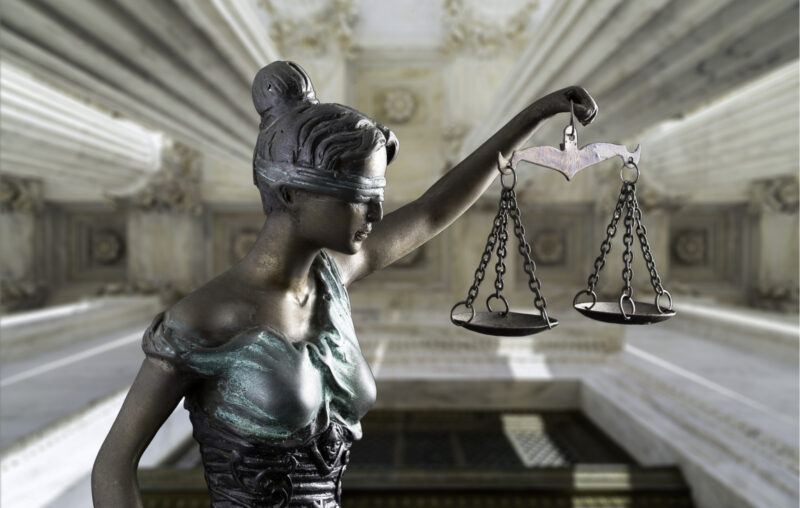Why Have the Courts Been Deferential to Lockdowns?

I think it’s safe to say that the United States is finally ending its experiment with the lockdown policies that have not only greatly failed but managed to unleash untold collateral damage on society. It doesn’t take a degree in political science to understand that if action is not taken now to prevent future abuses of power, they will happen again with increasing frequency and intensity. In a previous article, I covered how emergency powers are essentially the driving force behind the state’s ability to implement lockdowns. In that, I explained some basic, bipartisan reforms to the use of such powers which are now being debated in state legislatures across the country. In several articles, I have covered some of the legal victories against lockdowns and explored some of the legal theories that are holding ground in court. One common question that always arises is why and how can the courts be so friendly to lockdowns when they seem so unconstitutional. The answer is complicated but there is one important factor that applies to just about everything else in public affairs: public opinion.
Public opinion is crucial not only because we live in a liberal democracy but because the very language of our laws and doctrines often hinges on nebulous ideas such as the common good and the public interest. Unlike the enduring text of the Constitution, these doctrines change with the wind, sometimes to the benefit of freedom but oftentimes against it. In a liberal democracy, which is certainly worth defending, the court of public opinion and its influence on policy is a double-edged sword. Therefore, a successful anti-lockdown movement must not only win victories in the political process and the courts but also win the hearts and minds of the people as well as the popular establishment.
The Role of Public Opinion in the Legal Process
People often lament that lockdowns are blatantly unconstitutional and perhaps in an elementary understanding of the judicial process they might be. Unfortunately, that is not the case due to several doctrines such as the police power, emergency powers, and a court case known as Jacobson v. Massachusetts which gave the government the power to violate rights in pursuit of public health objectives. An excerpt from the text of Jacobson reads as follows,
“The police power of a State embraces such reasonable regulations relating to matters completely within its territory, and not affecting the people of other States, established directly by legislative enactment, as will protect the public health and safety.”
These phrases alongside legal tests such as the rational basis test and the narrowly tailored standard give way to a large amount of discretion for judges to exercise. Anytime these phrases or doctrines are involved, judges must form their own opinions on what constitutes a reasonable pandemic response or what the idea of public health constitutes. At the end of the day, most judges will form these opinions based on what they’ve heard in popular discourse or what they happen to believe is right. Many of these legal doctrines that create such seemingly unconstitutional discretion are products of the Progressive Era, which legal scholar Timothy Sandefur explains in detail in his book which I summarized here. Essentially the Progressive Era encompasses the presidencies of men like Woodrow Wilson and Franklin Roosevelt, who oversaw a massive expansion of government power and curtailed many civil and economic liberties. The rational basis test, which is an important legal instrument in deciding whether lockdowns are constitutional, is a product of this era. At the time it was often used to decide whether a government policy, often violating economic freedom, was reasonably associated with some sort of public goal. If so, then economic rights could be violated. Today this very open and opinionated question is one of the deciding factors in lockdown litigation.
The preamble to The Model State Emergency and Health Powers Act quotes the late Supreme Court Justice John Marshall Harlan on this matter by writing,
“Public health laws and our courts have traditionally balanced the common good with individual civil liberties. As Justice Harlan wrote in the seminal United States Supreme Court case of Jacobson v. Massachusetts, “[t]he whole people covenants with each citizen, and each citizen with the whole people, that all shall be governed by certain laws for the ‘common good.’”
Hollow phrases such as “the common good,” “the public interest,” and “reasonable” give enormous discretion to judges to decide what is and what is not constitutional. Oftentimes this is influenced by what a judge is perceiving in the popular discourse and established intellectual circles. For issues like public health, we should not expect judges to do hours of extensive research, examining the history of public health and reading critiques of disease models. They will go off what they have heard from the approved experts, what seems to be the popular idea, and what they perceive to be correct. This is how the courts approved an unprecedented expansion of government into economic and civil life during the Progressive Era and this is how the courts are doing the same today with lockdowns. The damage of hollow doctrines, such as the public interest, to sound economics and individual liberty is the basis of an award-winning essay I published that is available here. In short, they subjugate critical principles and protections to the ever-changing tides of public opinion.
Ilya Shapiro, a legal scholar at the Cato Institute, noted rather optimistically in May that,
“Just because certain expansive state actions are lawful at the outset of a pandemic doesn’t mean they continue to be lawful for as long as the government wants to maintain them.”
What he was referring to is the fact that oftentimes judges do not want to be seen as a hindrance to public health efforts until more information is known. Such information would be needed to debate what can be seen as narrowly tailored, passes the rational basis test, or what is in the public interest. Of course, all this hinges on who is in the popular media, who is widely accepted by the public health establishment, and what the popular consensus is.
The hard truth is that most people only have access to the opinions of people like Dr. Fauci and the CDC, who have all gone off the deep end of protectionism, recommending policies that may work in a controlled setting but don’t reflect the needs of a normal functioning society. There are many highly respected experts that would testify that lockdowns are not reasonable and not tailored to public health such as Harvard epidemiologist Martin Kulldorff as well as the over 50,000 medical professionals around the world who signed the Great Barrington Declaration.
However, the average person does not encounter this information on a regular basis and the pro-lockdown camp has done an excellent job at making all anti-lockdown positions seem fringe even though lockdowns were a fringe position as recently as last year. The average person seems to believe that lockdowns are a necessary evil as popular public health experts attack the reopening policies of Arizona, Florida, and Texas. This is despite the fact that they have been proven wrong on this topic time and time again.
The point is that although judges wish to defend the Constitution, there are a plethora of gray areas that rely on the interpretation of concepts such as a rational basis. Judges, much like the average person, do not have the time or desire to be rigorously comparing doctrines of public health as we do here at AIER. They will go off what they have heard in the news and from mainstream public health organizations such as the CDC and John Hopkins University.
For example, in a recent and controversial Supreme Court case hearing a challenge against New York Governor Andrew Cuomo’s ban on religious gatherings, Justice Neil Gorsuch ruled against the restrictions. He referenced how the Constitution doesn’t have a pandemic clause and that it seemed strange how many businesses could stay open but not religious organizations. However, the New Republic quotes Supreme Court Justice Sonia Sotomayor who challenges Justice Gorsuch by writing,
“Justice Gorsuch does not even try to square his examples with the conditions medical experts tell us facilitate the spread of COVID-19: large groups of people gathering, speaking, and singing in close proximity indoors for extended periods of time,” Justice (Sonia) Sotomayor noted.”
This statement demonstrates the clear divide and popular way of thinking that dominates much of the court system. Justice Sotomayor, although likely more deferential to state power as a Progressive, also clearly subscribes to the dominant narrative surrounding Covid-19. That is that our public health experts know everything and all their experimental recommendations for society work seamlessly. By accepting this flawed premise, in her eyes and the many judges across the country who share the same opinion, lockdowns are therefore constitutional under the various legal tests ranging from rational basis to narrowly tailored.
The judges in the American judicial system are some of the most gifted legal minds on the planet. However, when it comes to questions such as what defines “public health” and what passes a rational basis test in a pandemic, they are very much at the mercy of whatever is in the popular discourse. This is why anti-lockdown proponents and advocates of traditional public health policy as it was practiced a little bit over a year ago must compete in the realm of popular opinion. In order to reclaim and preserve our freedom, there must be victories not only in politics and the courts but also in the arena of public discourse.










